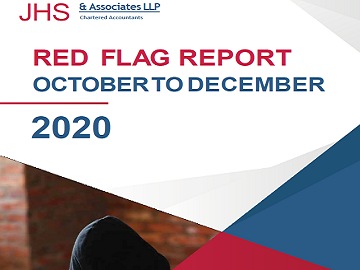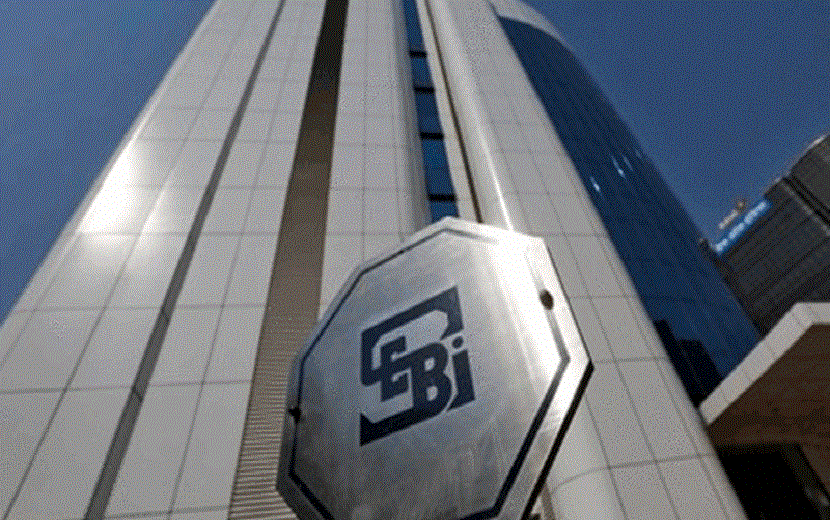Reference: Central Board of Indirect Taxes and Customs
Update:
Time limit for appeal to GST Appellate Tribunal to be counted from the date when President enters office
CBIC has clarified that time limit to make application to appellate tribunal will be counted from the date on which President enters office. The appellate authority while passing order may mention that appeal to be made to the appellate tribunal whenever constituted within 3 months when the President enters office. The appellate authorities are advised to dispose all pending appeals without waiting for the constitution of the appellate tribunal.
Implication:
As of now, the prescribed time limit to make application to appellate tribunal will be counted from the date on which President or the State President enters office.
Update:
Forms available on GST portal for Taxpayers and Tax Officials
CBIC issued various forms for GST related companies to be made by taxpayers and for taking actions on them by tax officials
Update:
Anti-dumping extended on import of Sheet Glass
The Central Government has revoked anti-dumping duty imposed on imports of ‘Sheet Glass’ originating in, or exported from, China PR and imported into India up to and inclusive of the 12th March, 2025, unless revoked earlier.
Implication:
Importers of Sheet Glass originating in or exported from China PR shall continue to pay anti dumping duty for extended period till 12.03.2025.
Update:
Increase in effective rate of Road and Infrastructure Cess (RIC)
CBIC seeks to increase the effective rate of Road and Infrastructure cess, as additional duty of customs on petrol and diesel by Rs. 1 per litre and thus substitutes in the said notification, in the Table against Sl. no. 1 and 2 to Rs. 10 per litre from Rs. 9 per litre.
Implication:
This notification shall come into force with effect from the 14th March, 2020.
Update:
Tariff Notification in respect of Fixation of Tariff Value
CBIC has notified the Government of India in the Ministry of Finance (Department of Revenue) about fixation of Tariff Value of Edible Oils, Brass Scrap, Poppy seeds, Areca Nut, Gold and Silver as prescribed in notification.
Update:
Electronic Sealing-Deposit in and removal of goods from Customs Bonded Warehouses
Representations to defer the implementation of regulations prescribed in the Circular-10/2020-Customs have been received from e-seal vendors. Thus, the Board has decided to defer the same till 30th April, 2020.
Implication:
The new date of implementation of the said Circular shall be 1st May, 2020.
Update:
Exemption to foreign airlines from furnishing reconciliation statement in FORM GSTR-9C
The persons who are foreign company which is an airlines company covered under the notification issued under sub-section (1) of section 381 of the Companies Act, 2013 (18 of 2013) and who have complied with the sub-rule (2) of rule 4 of the Companies (Registration of Foreign Companies) Rules, 2014, as the class of registered persons shall not be required to furnish reconciliation statement in FORM GSTR-9C.
Implication:
The said persons shall not be required to furnish reconciliation statement in FORM GSTR-9C provided that a statement of receipts and payments for the financial year in respect of its Indian Business operations, duly authenticated by a practicing CA in India is submitted for each GSTIN by the 30th September of the year succeeding the financial year.
Update:
Tariff Notification in respect of Fixation of Tariff Value
CBIC has notified the Government of India in the Ministry of Finance (Department of Revenue) about fixation of Tariff Value of Edible Oils, Brass Scrap, Poppy seeds, Areca Nut, Gold and Silver as prescribed in notification.
Reference: Central Board of Direct taxes
Update:
Notification of \’designated authority\’ under \’the Direct Tax Vivad se Vishwas Act, 2O2O\’
CBDT notified that following jurisdictional Commissioners of Income -Tax as specified in Column (2) of the prescribed table having their headquarters at Delhi, Kolkata, Mumbai, Ahmedabad, Pune, Bengaluru, Chennai or Hyderabad shall be the \’designated authorities\’ under the Direct Tax Vivad se Vishwas Act, 2020. It provides to the declarant, a mechanism to resolve disputes under the Income–tax Act, 1961.
Implication:
This order shall come into force with effect from 18.03.2020.
Update:
Notification of \’designated authority\’ under \’the Direct Tax Vivad Se Vishwas Act, 2020\’
CBDT notified that the following jurisdictional Principal Commissioners of Income-Tax/Commissioners of Income as specified in Column (2) of the prescribed table having their headquarters at Delhi only, shall be the \’designated authorities\’ under the Direct Tax Vivad se Vishwas Act, 2020. It provides to the declarant, a mechanism to resolve disputes under the Income–tax Act, 1961.
Implication:
This order shall come into force with effect from 18.03.2020.
Update:
Notification of \’designated authority\’ under \’the Direct Tax Vivad Se Vishwas Act, 2020\’
Principal Chief Commissioner of Income Tax, (UP), East, Lucknow notified following jurisdictional Principal Commissioner of Income Tax/ Commissioner of Income Tax as specified in column (2) of the given table, having their headquarters at Lucknow, Faizabad, Allahabad, Varanasi, Gorakhpur, Bareily or Moradabad shall be the \’designated authorities\’ under the Direct Tax Vivad 5e Vishwas Act, 2020. It provides to the \’declarant\’ a mechanism to resolve disputes under the Income Tax Act, 1961.
Implication:
This order shall come into force with effect from 18.03.2020.
Update:
Direct Tax Vivad se Vishwas Rules, 2020
CBDT has given certain rules in the Direct Tax Vivad se Vishwas Act, 2020 regarding;
- Form of declaration and undertaking,
- Form of certificate by designated authority,
- Intimation of payment,
- Manner of furnishing,
- Order by designated authority,
- Laying down of procedure, formats and standards,
- Manner of computing disputed tax in cases where loss or unabsorbed depreciation is reduced,
- Manner of computing disputed tax in cases where Minimum Alternate Tax (MAT) credit is reduced, and
- Manner of computing disputed tax in certain cases.
Implication:
These rules shall come into force on the date of their notification in the Official Gazette.
Update:
Income Tax Department designates Income tax Authority before whom particulars of parent entity and alternate reporting entity to file Country-by-Country Report would be notified
Every MNE group which has a constituent entity resident in India is mandated to notify the Income-tax Department its parent entity and alternate reporting entity and the countries where such entities are resident. Such parent entity or alternate reporting entity is required to furnish a report called “Country-by-Country Report” specifying certain information including aggregate information in respect of the amount of revenue, profit or loss before income-tax, amount of income tax paid and accrued, etc, the details of each constituent entity of the group and the nature and details of the main business activity or activities of each constituent entity.
Implication:
The Director General of Income tax (Risk Assessment) has designated the Joint Director of Income tax (Risk Assessment)-1 for the purpose of section 286 of the Act, with effect from the first day of April, 2020.
Update:
‘Profit’, not gross receipts relevant for determining foreign tax rate to claim relief u/s.91
Ahmedabad ITAT rules that foreign tax rate for determining relief u/s 91 should be ascertained considering the ‘profit’, not the ‘gross receipts’ with respect to software services rendered by assessee [an Indian company] to foreign parties [based in Afghanistan] during AY 2012-13 and lastly accepts assesse’s alternate plea that tha amount of tax paid in a foreign country which is not eligible for benefit u/s 91, shall be eligible for deduction u/s 37(1).
Update:
Agreement between India and Brunei for Exchange of Information
The Agreement enables exchange of information, including banking and ownership information, between the two countries for tax purposes and is based on international standards of tax transparency and exchange of information and enables sharing of information on request as well as automatic exchange of information.
Implication:
The Agreement will enhance mutual co-operation between India and Brunei Darussalam by providing an effective framework for exchange of information in tax matters which will help curb tax evasion and tax avoidance.
Update:
Reminder to Candidates
Candidates whose preferences forms has not been received/found incomplete are directed to submit the PREFERENCE FORM duly filled/complete in all respects, urgently.
Implication:
Such forms are to be reached at it latest or positively by 26.03.2020.
Update:
NOTIFICATION No. 17/2020-Income Tax
The Central Government hereby specifies that a nonresident being an Eligible Foreign Investor which operates in accordance with SEBI, shall be deemed as Foreign Institutional Investor (FII) for the purposes of transactions in securities made on a recognised stock exchange located in any International Financial Services Centre (IFSC), where the consideration for such transaction is paid or payable in foreign currency.
Reference: Reserve Bank of India
Update:
Withdrawal of Directions – Sri Bharathi Co-operative Urban Bank Ltd., Hyderabad
RBI had issued Directions to Sri Bharathi Co-operative Urban Bank Ltd., Hyderabad from the close of business which was last extended up to April 02, 2020. RBI has now decided to withdraw the directions to the bank with effect from March 19, 2020.
Implication:
The said bank is under no obligation to follow the directions given by RBI.
Update:
Implementation of Indian Accounting Standards
RBI framed regulatory guidance on Ind AS in order to promote a high quality and consistent implementation as well as facilitate comparison and better supervision. These guidelines focus on the need to ensure consistency in the application of the accounting standards.
A. Governance Framework
- NBFCs/ARCs are advised to put in place Board approved policies that clearly articulate and document their business models and portfolios and shall articulate the objectives for managing each portfolio.
- NBFCs/ARCs shall frame their policy for sales out of amortised cost business model portfolios and disclose the same.
- NBFCs/ARCs are advised to not make changes in the parameters, assumptions and other aspects of their ECL model for the purposes of profit smoothening.
- The ACB should approve the classification of accounts that are past due beyond 90 days but not treated as impaired, with the rationale for the same clearly documented.
- NBFCs/ARCs shall not defer the recognition of significant increase in credit risk for any exposure that is overdue beyond 60 days.
B. Prudential Floor for ECL
- NBFCs/ARCs shall also maintain the asset classification and compute provisions as per extant prudential norms on Income Recognition, Asset Classification and Provisioning (IRACP) including borrower/beneficiary wise classification, provisioning for standard as well as restructured assets, NPA ageing, etc.
- NBFCs/ARCs shall appropriate the difference from their net profit or loss after tax to a separate ‘Impairment Reserve’.
C. Computation of Regulatory Capital and Regulatory Ratios
- Any net unrealised gains arising on fair valuation of financial instruments, including such gains arising on transition to Ind AS, should not be included in owned funds whereas all such net losses should be considered.
- NBFCs shall reduce the lower of acquisition cost or fair value of investments/advances in subsidiaries/other group companies and other NBFCs while determining Tier I capital as prescribed in the notification.
- The NBFC shall reduce 50 per cent of the amount of credit enhancement given from Tier I capital and the balance from Tier II capital.
Implication:
NBFCs are required to comply with Indian Accounting Standards for the preparation of their financial statements.
Update:
Limits on exposure to single and group borrowers/parties and large exposures and Revision in the target for priority sector lending – UCBs
The prudential exposure limits for UCBs for a single borrower/party and a group of connected borrowers/parties shall be 15 per cent and 25 per cent, respectively, of their tier-I capital. The revised exposure limits shall apply to all types of fresh exposures taken by UCBs. UCBs shall have at least 50 per cent of their aggregate loans and advances comprising loans of not more than ₹25 lakh or 0.2% of their tier I capital, whichever is higher, subject to a maximum of Rs.1 crore, per borrower/party. the overall PSL target for UCBs shall stand increased to 75 per cent of ANBC or CEOBSE, whichever is higher.
Implication:
UCBs shall comply with the above target by March 31, 2024.
Update:
Extension of period- Padmashri Dr. Vitthalrao Vikhe Patil Co-operative Bank Ltd., Nashik, Maharashtra
RBI had issued to the Padmashri Dr. Vitthalrao Vikhe Patil Co-operative Bank Ltd., Nashik, Maharashtra, the validity of directions for close of business which was last extended upto May 19, 2018. RBI has further extended the validity of directions for a period of six months from March 18, 2020 to September 17, 2020.
Implication:
The said bank will have to follow the directions issued by the RBI for further period of six months i.e., till 17.09.2020.
Update:
COVID-19- Operational and Business Continuity Measures
RBI has provided a list of steps for preventing and controlling the local transmission of disease to be taken by the respective banks/financial institutions as a part of their existing operational and business continuity plans, namely;
- Dectection of infected employees including travel plans and quarantine requirements as well as avoiding spread of panic among staff and members of the public.
- Taking stock of critical processes and revisiting Business Continuity Plan (BCP) with the aim of continuity in critical interfaces and preventing any disruption of services.
- Taking steps of sharing important instructions/strategy with the staff members at all levels for soliciting better response and participation and sanitizing the staff members about preventive measures/steps to be taken in suspected cases.
- Encouraging customers to use digital banking facilities as fas as possible.
RBI also advises the entities to assess impact on their balance sheet, asset quality, liquidity etc arising out of potential scenarios.
Implication:
Quick Response Team may be constituted for the purpose, which shall provide regular updates to the top management on significant developments.
Update:
Reporting and Accounting of Central Government Transactions of March 2020
Branches including those not situated locally, should adopt special arrangements such as courier services for passing on challans/rolls so that all payments and collections made on behalf of government towards end of March are accounted for in the same financial year. Branches are advised to follow the procedure for reporting of March 2020 transactions by Nodal/Focla branches in April, as outlined in the Annex.
Implication:
All the cheques/amounts realized on or before March 31, 2020 will be treated as transactions relating to the current financial year as “March 2020 or March Residual Transactions”, the reporting of which may take place during the month of April (upto April 10, 2020). But if any cheque is tendered on or before March 31, 2020 and realised on or after April 1, 2020, it will be treated as transaction for the next financial year as “April Transactions”.
Update:
Guidelines on Regulation of Payment Aggregators and Payment Gateways
RBI issued directions for opening and operation of accounts and settlement of payments for electronic payment transactions involving intermediaries’. It has been decided to;
- Regulate in entirety the activities of PAs as per the guidelines in Annex 1; and
- Provide baseline technology-related recommendations to PGs as per Annex 2.
Implication:
These guidelines shall come into effect from April 1, 2020 other than for activities for which specific timelines are mentioned.
Update:
Prudential Norms for Classification, Valuation and Operation of Investment Portfolio by Banks
Banks have enquired whether IFR, forming part of General Provisions and Loss Reserves, can be reckoned as Tier II capital only to the extent of 1.25% of total credit risk weighted assets. It is clarified that there is no such ceiling for IFR.
Update:
Issue of Long Term Bonds by Banks – Financing of Infrastructure and Affordable Housing
The purpose of definition of ‘Infrastructure Lending’, banks and select All India Term-Lending and Refinancing Institutions is guided by the Gazette Notifications. Thus, ‘Infrastructure Sub-sectors’ and ‘affordable housing’ has been defined under paragraphs 2(i) and 2(ii) of the Annex given in the said notification.
Implication:
It has been decided to align the definition of lending to affordable housing.
Update:
Settlement system under Asian Clearing Union (ACU) Mechanism
In order to facilitate transactions / settlements, effective March 06, 2020, participants in the Asian Clearing Union will have the option to settle their transactions either in ACU Dollar or ACU Euro or in ACU Japanese Yen. Further, banks are allowed to open and maintain ACU Dollar, ACU Euro and ACU Japanese Yen accounts with their correspondent banks in other participating countries.
Implication:
Operations in ‘ACU Euro’ has been temporarily suspended with effect from July 01, 2016.
Update:
Availability of Digital Payment Options
RBI has established state of the art payment systems that are efficient, convenient, safe, secure and affordable and hence, brings to the notice of the general public that non-cash digital payment options (like NEFT, IMPS, UPI and BBPS) are available round the clock to facilitate fund transfers, purchase of goods / services, payment of bills, etc.
Implication:
Public can use these modes of digital payment from the convenience of their homes through online channels like mobile banking, internet banking, cards, etc.
Update:
Macroeconomic Effects of Uncertainty: A Big Data Analysis for India
RBI placed on its website a Working Paper titled “Macroeconomic Effects of Uncertainty: A Big Data Analysis for India” under the RBI Working Paper Series authored by Nalin Priyaranjan and Bhanu Pratap. The paper reviews the emerging literature on macroeconomic uncertainty, including its economic impact and measurement. The paper concludes that such uncertainty indices can help in strengthening policy simulation exercises and in improving nearterm projection of macroeconomic variables which exhibit high degree of sensitivity to uncertainty.
Update:
Publication of RBI-Occasional Papers
RBI releases Volume 40, No.2 of its Occasional Papers and it contains 3 articles, namely;
- Fiscal Rules and Cyclicality of Fiscal Policy: Evidence from Indian States.
- Payment Systems Innovation and Currency Demand in India: Some Applied Perspectives.
- Can Financial Markets Predict Banking Distress? Evidence from India.
The issue of the RBI Occasional Papers also contains 2 book reviews, namely;
- Narrative Economics: How Stories Go Viral and Drive Major Economic Events” written by Robert J. Shiller, reviewed by Palak Godara.
- How to combat recession: Stimulus without debt written by Laurence Seidman reviewed by Deepika Rawat.
Reference: Securities Exchange Board of India
Update:
Relaxation from compliance with certain provisions of the SEBI (Listing Obligations and Disclosure Requirements) Regulations, 2015 due to the CoVID -19 virus pandemic
SEBI has granted following relaxations from compliance stipulations specified under the SEBI (Listing Obligations and Disclosure Requirements) Regulations, 2015, namely;
- Extension of timeline for filings; and
- Relaxation of time gap between two board/Audit Committee meetings.
Implication:
This Circular shall come into force with immediate effect.
Update:
Monetary penalty on G R K Reddy and 21 others
GRK Reddy, GRK Reddy Sons HUF, Global Inforserv Ltd, Marg Capital Markets Ltd, Marg Projects and Infrastructure Ltd, Raghunatha Reddy SV, Nagaraja Reddy SV, Chandra Reddy E, Subhash Reddy Y, Revanth S, Hymavathi S, Laxmi E, Manjula Y, Mallikarjuna Rao G, Parvathi Devi G, Surendranathan Reddy Gorepatti, VP Rajini Reddy, Madhusudhan Reddy Gorepatti, Exemplarr Worldwide Ltd and Akshya Infrastructure Private Limited (Noticees 1-22) respectively, have failed to make public announcement on the respective dates during the financial years 2006-07, 2007-08 and 2010-11 thereby violating the provisions of regulation 11(1) read with regulation 14(2) of the SAST Regulations which relate to the consolidation of holdings and timing of the public announcement of offer.
Hence, SEBI imposed a monetary penalty of Rs. 74,75,00,000/- on the noticees for violating the said provisions.
Implication:
The Noticee shall remit / pay the said amount of penalty jointly and severally within 45 days of receipt of this order.
Update:
Monetary penalty on Akshya Infrastructure Private Limited
Akshya Infrastructure Private Limited (Noticee) did not carry out the changes in the LOO as specified by SEBI vide letter dated November 30, 2012, failed to send LOO to the shareholders and to make public announcement for revision of the offer price in compliance with SEBI observation letter dated November 30, 2012 thereby violating the provisions of regulation 18(2) read with regulation 26 of the SAST Regulations which is related to the submission of letter to the board and upward revision of offer.
Hence, SEBI imposed a monetary penalty of Rs 25,00,000/- on the Noticee for violating the said provisions.
Implication:
The Noticee shall remit / pay the said total amount of penalty within 45 days of receipt of this order.
Update:
General Information Document
Subsequent changes in laws, regulation and processes, necessitated changes in the General Information Document (GID) and in pursuance of the same, generic disclosures are to be brought out in the General Information Document are enumerated in the Annexure.
Lead Manager(s) shall ensure that;
5.1 The GID should explicitly incorporate the date of last updation;
5.2 The updated copy of GID is provided to an investor as and when requested, in form and manner so requested by the investor;
5.3 The updated GID is made available on the websites of the;
5.3.1 Stock Exchange(s) where the shares pursuant to an issue are proposed to be listed; and
5.3.2 Respective Lead Manager(s) to the issue, where DRHP/RHP/Draft Prospectus/Prospectus is made available.
Implication:
This circular shall become applicable to all RHP / Prospectus which shall be filed with the Registrar of Companies on or after March 17, 2020.
Update:
Monetary penalty on MBL & Company Ltd
MBL & Company Ltd (Noticee) had contributed positive Last Traded Price (LTP) of 12.64% of total market positive LTP in Patch 1 of the investigation period by repeatedly entering into self-trades in its proprietary accounting negligible quantity, which created a misleading appearance of trading and manipulated the price of the scrip of GNCL without any intention of change of ownership of the security and violated the provisions of Section 12 A (a) (b) (c) of SEBI Act read with Regulation 3 (a),(b),(c),(d),4 (1), 4 (2) (a), (e)and (g) of SEBI PFUTP Regulations. Noticee has also failed to exercise due diligence as a Stock Broker, which resulted in execution of self-trades in its own proprietary account resulting in no change of beneficial ownership in respect of such trades and thereby violated the provisions of Clause A (2) of the Code of conduct for Stock Brokers as specified in Schedule II read with Regulation 7 (Regulation 9 –post amendment) of SEBI (Stock Brokers and Sub-brokers) Regulations, 1992.
Hence, SEBI imposed a monetary penalty of Rs. 15,00,000/- on the Noticee for violating the said provisions.
Implication:
The Noticee shall remit / pay the total penalty amount within 45 days of receipt of this order.
Update:
Monetary penalty on Mr. Alok Bhargave
Mr. Alok Bhargave (Noticee) was xecuted total 180trades in 50unique Stock Option contracts during the Investigation Period, out of which 166reversal trades in 44 unique contracts had been found to be non-genuine trades which allegedly led to creation of artificial volume of total 1,85,25,000 units. It is further observed that the Noticee, by executing non genuine trades during the relevant period, registered a negative close out difference of ₹1,00,57,500/- approx. These alleged non genuine trades, executed by Noticee in abovecontracts, had significant differential in buy rates and sell rates considering that the trades were reversed on same day thereby violating the provisions of Regulation 3(a),(b),(c),(d), 4(1) and 4(2)(a) of SEBI PFUTP Regulations.
Hence, SEBI imposed a monetary penalty of Rs. 8,30,000/- on the Noticee.
Implication:
The Noticee shall remit / pay the total penalty amount within 45 days of receipt of this order.
Reference: Employment/Labour Laws
Update:
Employees’ Pension Scheme (Amendment) Scheme, 2020
Considering demands of EPS, 1995 pensioners, the Government has constituted a High Empowered Monitoring Committee for complete evaluation and review of EPS, 1995. It has given State/UT-wise details of number of employees enrolled under EPS, 1995 in Annexure-1
Implication:
The Government has notified decision to restore normal pension after completion of 15 years from the date of such commutation.
Reference: Ministry of Corporate Affairs
Update:
Companies (Meetings of Board and its Powers) Amendment Rules, 2020
MCA has made amends in the Companies (Meetings of Board and its Powers) Rules, 2014. In the given rules, rule 4 shall be renumbered as sub-rule (1) and after sub-rule (1) the given rule shall be inserted, namely;
\”(2) For the period beginning from the commencement of the Companies (Meetings of Board and its Powers) Amendment Rules, 2020 and ending on the 30th June,2O2O, the meetings on matters referred to in sub-rule (1) may be held through video conferencing or other audio visual means in accordance with rule 3.\”
Implication:
This amendment shall come into force on the date of its publication in the Official Gazette.
Update:
Extension of last date of application for the post of AGM and below in NFRA on deputation/short term contract basis
The Authority had proposed to fill up the posts in its headquarters at New Delhi on deputation/short-term contract basis, initially for a period of three years but now the MCA has extended the last date for submission of applications for the given posts from 11.03.2020 to 31.03.2020.
Implication:
Applicants will have more time to submit their applications i.e, till 31.03.2020.
Update:
Invitation for Public Comments on the Companies (Corporate Social Responsibility Policy) Amendment Rules, 2020
In order to operationalize the Companies (Amendment) Act, 2019, the Companies (Corporate Social Responsibility Policy) Amendment Rules , 2020 has been drafted for carrying out amendments in the Companies (CSR Policy) Rules, 2014. Public comments are therefore solicited on the draft Companies (Corporate Social Responsibility Policy) Amendment Rules, 2020 and the stakeholders may submit their comments if any by end of business hours on 28th March, 2020 positively.
Implication:
Stakeholders shall have more time to submit their comments.
Update:
Invitation for Public Comments on the Companies (Corporate Social Responsibility Policy) Amendment Rules, 2020
A draft of the Companies (Corporate Social Responsibility Policy) Amendment Rules, 2020 has been made for carrying out amendments in the Companies (CSR Policy) Rules, 2014 and public comments for the same are solicited.
Implication:
Stakeholders may submit their comments, if any by the end of business hours on 2th March, 2020 positively.
Update:
Board meetings under the Companies Act, 2013
The Government has in-principle decided to relax the requirement of holding Board meetings with physical presence of directors due to the outbreak of the coronavirus (Covid-19).
Implication:
Such meetings may till 30th June, 2020 be held through video conferencing or other audio visual means.
Update:
Extension for Invitation for Public Comments on the Companies (Corporate Social Responsibility Policy) Amendment Rules, 2020
A draft of the Companies (Corporate Social Responsibility Policy) Amendment Rules, 2020 has been made for carrying out amendments in the Companies (CSR Policy) Rules, 2014 and public comments for the same are solicited. Comments, if any, may be submitted online therein by the end of business hours on 28th March, 2020 positively.
Implication:
Stakeholders shall have more time to submit their comments i.e., till 28.03.2020.
Update:
Circular for engagement of Chartered Accountants in NFRA
NFRA invites applications from qualified Chartered Accountants for engagement in NFRA on Contract basis as per details given on its website.
Implication
Interested and eligible professionals may apply accordingly.
Update:
Companies (Amendment) Act, 2020
MCA has made amends in the Companies (Amendment) Act, 2020.
Implication:
It shall come into force on such date as the Central Government may, by notification in the Official Gazette provided that different dates may be appointed for different provisions of this Act.
Reference: Insurance Regulatory and Development Authority in India
Update:
Constitution of a Committee on Corporate Governance Guidelines for Insurers in India
In order to provide due weightage to control functions, there is need to enhance the governance system of insurers. IRDAI, thus in order to review the guidelines and to make it more effective and robust, constitutes a Committee with the following members, namely;
- Mr. Pravin Kutumbe
- Dr. Mamta Suri
- Mrs. Yegna Priya Bharat
- Mr. V. Jayanth Kumar
- Mr. R K Sharma
- Mr. A Venkateswara Rao
- Mr. G Anantharaman
- Mr. Navin Nambiar
- Mr. V R Narasimhan
- ICAI Representative
- ICSI Representative
- LIC Representative
- General Insurance Companies (Public Sector) Representative
- Mr. Loknath Kar
- Mr. Narendra Gangan
- Mrs. R Uma Maheswari
Implication:
The Committee shall submit the Report to the Chairman, IRDAI within a period of three months from the date of this order.
Update:
Filing Reference Number (FRN) for Cross Border Reinsurers granted approval under Regulation 4 of IRDAI (Re-insurance) Regulation, 2018
On the basis of the submission made by cross border reinsurers and recommendations made by insurers, the Authority has granted special approval to Zep Re (PTA Reinsurance Company), East Africa Reinsurance Company Ltd., Nepal Reinsurance Co. Ltd., Asian Reinsurance Corporation, FAIR Aviation Pool and Ingosstrakh Insurance Company PJSC.
Update:
Modified Guidelines on Product filing in Health Insurance Business
In the event where the policyholder occupying a room with higher tariff, health insurance products, subject to product design, may stipulate recovery of proportionate deductions in respect of various associated medical expenses. With this objective it is proposed to issue norms on making proportionate deductions.
Implication:
Stakeholders are requested to forward their comments/suggestions on the proposed guidelines in the requested format.
KNOWLEDGE ALERT
Insights to help you sharpen your Governance, Risk and Compliance Knowledge
Issued by: Knowledge Management Team of JHS & Associates LLP (JHS), Chartered Accountants
DISCLAIMER
- JHS & Associates LLP, Chartered Accountants [“JHS”] by means of this presentation is not rendering any professional advice, or services whatsoever.
- JHS is under no obligation whatsoever to update, or revise this presentation, or the information provided herein.
- JHS has taken reasonable care to ensure that the information in this presentation is accurate. It however accepts no legal responsibility for any consequential incidents that may arise from errors or omissions contained in this presentation.
- This presentation is strictly confidential and is for the intended recipient only. It is solely for the recipient to determine what may, or may not be accurate or appropriate.
- This presentation should be viewed solely in conjunction with the oral session conducted by JHS, failing which it is deemed to be incomplete.
- This presentation is based on the information available to JHS at the time of preparing the same, all of which are subject to changes which may, directly or indirectly impact the information and statements given in this presentation.
- This presentation has been prepared on the basis of information available in the public domain and is intended for guidance purposes only. This information is not comprehensive and has not been independently verified as to accuracy, or completeness by JHS.
- This presentation may not be used for any other purpose without the prior written consent of JHS.
- Neither JHS, nor any person associated with JHS will be responsible for any loss howsoever sustained by any person or entity who relies on this presentation. Interested parties are strongly advised to examine their precise requirements for themselves, form their own judgments and seek appropriate professional advice.
If you do not wish to receive this knowledge alert you may please write to us on connect@jhsassociates.in .If you have any questions or seek more clarity please write to us on connect@jhsassociates.in.
Copyright © 2020. JHS & Associates LLP, Chartered Accountants. All Rights Reserved













